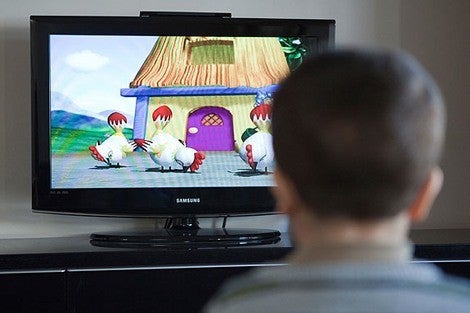A study that followed more than 1,800 children from ages 6 months to nearly 8 years found a small but consistent association between increased television viewing and shorter sleep duration. The report, by investigators at Harvard School of Public Health (HSPH) and MassGeneral Hospital for Children, appeared in the May issue of Pediatrics.
Researchers found that each additional hour of television viewing was associated with seven fewer minutes of sleep a night, with the effects appearing to be stronger in boys than in girls. Racial and ethnic minority children were much more likely to sleep in a room where a television was present, and among those children, the presence of a bedroom television reduced average sleep by around 30 minutes a night. Television watching and insufficient sleep can both have negative effects on mental and physical health, the authors noted.
Lead author for the study was Elizabeth Cespedes, a doctoral student in the Departments of Nutrition and Epidemiology at HSPH, and senior author was [[Elsie Taveras]], associate professor in the Department of Nutrition.
Read a Harvard Gazette article about the study: TV a sleep detriment in children, study finds
Read the study: Television Viewing, Bedroom Television, and Sleep Duration From Infancy to Mid-Childhood
